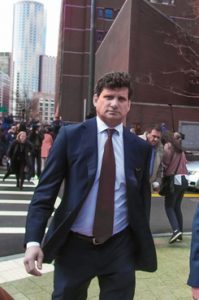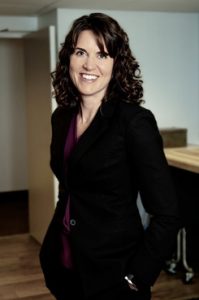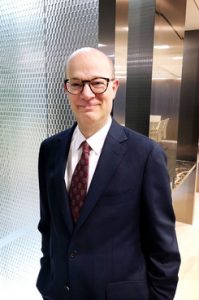Scandal on Campus
University admissions policies face fairness, credibility questions.
May 31, 2019 at 11:59 PM
10 minute read

When attorney Gordon Caplan lied about his daughter's disability so she could take a college entrance test at a specific site, when he paid a $75,000 bribe so that someone at that site would doctor her answers to increase her score, and especially later, when he agreed to plead guilty to conspiracy to commit fraud, the former co-chair of Willkie Farr & Gallagher changed his life forever.
But the impact went much deeper than one man. Caplan and 49 other defendants in the college admissions scandal known as Operation Varsity Blues also uprooted the college admissions process in America. Prosecutors called it the largest college admissions fraud ever in the U.S.
The massive criminal indictments filed in March against parents, testers, coaches and others sparked outrage across the country. They also opened the dark world of college admissions to more scrutiny than it has ever known. That scrutiny includes an ongoing U.S. Department of Education inquiry into eight schools mentioned as “relevant entities” in the indictments, plus an NCAA investigation into the schools. An NCAA statement said, “The charges brought forth are troubling and should be a concern for all of higher education.”
The concern goes well beyond the eight schools. In fact, the prosecution and the federal inquiry have caused university general counsel across America to engage in internal reviews that could bring sweeping changes in school admissions policies everywhere.
 Gordon Caplan, the suspended co-chairman of Willkie Farr & Gallagher, leaves the John Joseph Moakley U.S. Courthouse in Boston with his lawyer Joshua Levy of Ropes & Gray after his initial appearance in the college admissions bribery scandal on April 3, 2019.
Gordon Caplan, the suspended co-chairman of Willkie Farr & Gallagher, leaves the John Joseph Moakley U.S. Courthouse in Boston with his lawyer Joshua Levy of Ropes & Gray after his initial appearance in the college admissions bribery scandal on April 3, 2019.Laurel Gift, chair of internal investigations, ethics and compliance at Schnader Harrison Segal & Lewis in Pittsburgh, says one of her higher education clients not involved in the scandal was commiserating recently over the number of internal meetings being held to determine how to proceed. “Every responsible university and college is questioning how to respond and what to do next,” says Gift, a former prosecutor.
Gift says there's another harrowing thought driving general counsel: The number of schools involved in the federal inquiry is likely to expand. She cites statements deep in the hundreds of pages of court documents suggesting that the cheating scheme placed over 856 students at many other schools over the past two years.
The numbers came from William Rick Singer, the architect of the scheme. And how many more schools were involved? “We've done it everywhere,” Singer said.
One internal review has already reached into the in-house legal department. In April, the University of Southern California announced Carol Mauch Amir, its senior vice president for legal affairs and professionalism, was departing after the school was named, but not charged, in the scandal. Mauch Amir could not be reached for comment.
The Scandal Breaks
Operation Varsity Blues broke into public awareness on March 11 when prosecutors announced indictments against 32 parents, nine coaches and three testing officials, among others. Besides Caplan, the wealthy parent defendants included actresses Lori Loughlin and Felicity Huffman, fashion designer Mossimo Giannulli and several titans of industry.
The bribe scheme took two paths. The parents were accused of bribing college entrance exam administrators to manipulate tests on behalf of their children, or of bribing coaches and school officials to designate student applicants as favored recruited athletes. In most cases, the students didn't even participate in the sports. Some of the students didn't know about the cheating on their behalf; others did.
The University of Southern California had the most bribe takers. The school's senior associate athletic director and three coaches were indicted and lost their jobs. Besides USC, the other universities named were Yale University, Stanford University, University of Texas, Georgetown University, University of San Diego, Wake Forest University, and the University of California, Los Angeles.
The early charges included conspiracy to commit racketeering or fraud. As of this writing, several defendants, including Singer, have already pleaded guilty. For 16 parents who wouldn't plead, the U.S. Department of Justice brought an extra charge of money laundering.
No university was charged. No university general counsel would comment, although most of the schools involved released public statements saying they were cooperating with prosecutors and conducting their own internal reviews.
Gregg Clifton, a principal in the Phoenix office of Jackson Lewis, says the NCAA part of the inquiry will be crucial to the schools. Clifton co-chairs his firm's collegiate and professional sports practice group.
“Has any of the bribe money benefited school programs directly?” Clifton asks. “Was there even a trickle down that went into a school program?” If so, he says the school could be liable and face stiff NCAA penalties.
Christine Helwick, former general counsel at California State University and now of counsel with Hirschfeld Kraemer in San Francisco, says the scandal will keep general counsel busy. Helwick says they must marshal the facts, such as where the bribe money went, internally review their admission processes and look for possible legal exposure while fixing any vulnerabilities.
“Someone will probably fashion some claim for liability,” she says, based on some form of false advertising or even discrimination. Indeed some students or rejected students have already filed lawsuits.
Finding A Deeper Issue
The outrage over the scandal goes beyond the bribes. Mark Ehlers, a former federal prosecutor and co-head of the educational investigations practice at Kroll in Philadelphia, says the Department of Education's inquiry has broader implications for all institutions of higher learning that do not operate an open admissions policy. The inquiry is looking not just at admissions but at how schools market themselves.
“Schools want to hold themselves out as a meritocracy,” Ehlers explains. “But everyone knows there are other factors taken into account directly, indirectly or implicitly.”
 Laurel Gift, with Schnader Harrison Segal & Lewis.
Laurel Gift, with Schnader Harrison Segal & Lewis.The “other factors” are fairly well known. Recruited athletes and students with “ties” to a school, get special treatment. Although Ehlers can't discuss it, he helped lead a University of Texas-Austin inquiry in 2014 when that school reviewed its admissions policies. The study found that while certain preferential admission practices at UT “may not violate any existing law, rule, or policy, it is an aspect of the admissions process that does not appear in UT-Austin's public representations.”
UT-Austin has lots of company. So-called “legacy students” receive preferential admission to the majority of research universities and liberal arts colleges in the U.S., according to a 2010 study entitled “An Analytic Survey of Legacy Preferences” from anthology “Affirmative Action for the Rich.” Legacy students can be the children of wealthy school donors, high-profile faculty members, top administrators, trustees and even powerful politicians.
The Chronicle of Higher Education, in an April 17 article, headlined the problem at the heart of the conspiracy: “'It's an Artistocracy': What the Admissions-Bribery Scandal Has Exposed About Class on Campus.” It went on to say, “The criminal actions of a few rogue coaches and parents have shined a spotlight on the role that elite colleges play in perpetuating wealth and privilege.”
Daniel Prywes, a litigator with Morris, Manning & Martin, represents several universities in the Washington, D.C., area. Prywes says the admissions fraud “raises a broader set of questions about the role of money and legacies and non-meritocratic issues in college admissions, because many people don't sneak in the back door through fraudulent activity. They are legacies, and this latest scandal can't help but raise questions about the legitimacy of that kind of admissions activity.”
He says the U.S. admissions mess stands in sharp contrast to many countries in Europe. There, college admission is a much less subjective and more transparent process, primarily based on entrance exam performance.
Ehlers say the Department of Education inquiry wants to know how schools represent themselves to the public. “Most schools hold themselves out as having an admission process that has integrity and fairness, is applied consistently, and is engaged in a holistic review of applicants,” he says. “From the Department of Education's perspective, they want to make sure you are not making misrepresentations in brochures and on websites to consumers or prospective students.”
Think Like A Bank Prywes has some key advice for universities: Start thinking like a bank. “All universities have a reputational interest and a moral obligation to make sure the admission process is legitimate and not subjected to fraudulent outcomes,” he says. To do that, Prywes suggests universities fortify their admissions processes against fraud and abuse much as a bank does, with every stage of the process monitored and covered by internal controls.
 Daniel Prywes, with Morris, Manning & Martin in Washington.
Daniel Prywes, with Morris, Manning & Martin in Washington.He also suggests an admissions hotline for people to anonymously report problems, and a “robust internal audit” of the admissions department, including an “audit trail” on every admission. Although apparently not part of this scandal, Prywes thinks cybersecurity—as in possible hacks of the admission office—should be a focus of internal reviews as well.
Schnader's Gift agrees that all universities need an internal review of the admissions department to find potential weaknesses. She suggests random audits of applications and a regular check on recruited athletes. “If an unusual number of athletes are not showing up to play, that's a pretty clear dataset” and a red flag, she says.
Fraud in testing is another problem, Gift notes. “The university can't control the administration of these tests,” she says. But perhaps it can bring pressure on the testing companies for more background checks and training of testers, and demand more internal controls and monitoring as well.
Another approach came from David Huntley, senior vice president and chief compliance officer at AT&T. Speaking April 12—as the admissions scandal was unfolding—at the inaugural kickoff of Louisiana State University's Ethics Institute, Huntley proposed that every university embed ethics into the DNA of the school, for faculty, staff and students. Ethics programs, Huntley says, should be “built in” and not “bolted on.”
Perhaps schools can find a way to build fairness into their admissions policies. Regardless, Ehlers sees the latest scandal creating lingering credibility questions. “I think all schools would be well served to do a proactive review of their admission policies and procedures from the perspective of integrity, fairness and transparency,” he says. “This is going to be an ongoing issue for schools.”
Senior reporter at ALM since 2004; based in Florida; covers general counsel and white collar crime; contact: [email protected]
This content has been archived. It is available through our partners, LexisNexis® and Bloomberg Law.
To view this content, please continue to their sites.
Not a Lexis Subscriber?
Subscribe Now
Not a Bloomberg Law Subscriber?
Subscribe Now
NOT FOR REPRINT
© 2025 ALM Global, LLC, All Rights Reserved. Request academic re-use from www.copyright.com. All other uses, submit a request to [email protected]. For more information visit Asset & Logo Licensing.
You Might Like
View All
The Met Hires GC of Elite University as Next Legal Chief

'Everything From A to Z': University GCs Tested by Legal, Financial, Societal Challenges
6 minute read

Former Rutgers Law School Dean Replaces Hoffman as University General Counsel on Interim Basis
4 minute readTrending Stories
- 1How ‘Bilateral Tapping’ Can Help with Stress and Anxiety
- 2How Law Firms Can Make Business Services a Performance Champion
- 3'Digital Mindset': Hogan Lovells' New Global Managing Partner for Digitalization
- 4Silk Road Founder Ross Ulbricht Has New York Sentence Pardoned by Trump
- 5Settlement Allows Spouses of U.S. Citizens to Reopen Removal Proceedings
Who Got The Work
J. Brugh Lower of Gibbons has entered an appearance for industrial equipment supplier Devco Corporation in a pending trademark infringement lawsuit. The suit, accusing the defendant of selling knock-off Graco products, was filed Dec. 18 in New Jersey District Court by Rivkin Radler on behalf of Graco Inc. and Graco Minnesota. The case, assigned to U.S. District Judge Zahid N. Quraishi, is 3:24-cv-11294, Graco Inc. et al v. Devco Corporation.
Who Got The Work
Rebecca Maller-Stein and Kent A. Yalowitz of Arnold & Porter Kaye Scholer have entered their appearances for Hanaco Venture Capital and its executives, Lior Prosor and David Frankel, in a pending securities lawsuit. The action, filed on Dec. 24 in New York Southern District Court by Zell, Aron & Co. on behalf of Goldeneye Advisors, accuses the defendants of negligently and fraudulently managing the plaintiff's $1 million investment. The case, assigned to U.S. District Judge Vernon S. Broderick, is 1:24-cv-09918, Goldeneye Advisors, LLC v. Hanaco Venture Capital, Ltd. et al.
Who Got The Work
Attorneys from A&O Shearman has stepped in as defense counsel for Toronto-Dominion Bank and other defendants in a pending securities class action. The suit, filed Dec. 11 in New York Southern District Court by Bleichmar Fonti & Auld, accuses the defendants of concealing the bank's 'pervasive' deficiencies in regards to its compliance with the Bank Secrecy Act and the quality of its anti-money laundering controls. The case, assigned to U.S. District Judge Arun Subramanian, is 1:24-cv-09445, Gonzalez v. The Toronto-Dominion Bank et al.
Who Got The Work
Crown Castle International, a Pennsylvania company providing shared communications infrastructure, has turned to Luke D. Wolf of Gordon Rees Scully Mansukhani to fend off a pending breach-of-contract lawsuit. The court action, filed Nov. 25 in Michigan Eastern District Court by Hooper Hathaway PC on behalf of The Town Residences LLC, accuses Crown Castle of failing to transfer approximately $30,000 in utility payments from T-Mobile in breach of a roof-top lease and assignment agreement. The case, assigned to U.S. District Judge Susan K. Declercq, is 2:24-cv-13131, The Town Residences LLC v. T-Mobile US, Inc. et al.
Who Got The Work
Wilfred P. Coronato and Daniel M. Schwartz of McCarter & English have stepped in as defense counsel to Electrolux Home Products Inc. in a pending product liability lawsuit. The court action, filed Nov. 26 in New York Eastern District Court by Poulos Lopiccolo PC and Nagel Rice LLP on behalf of David Stern, alleges that the defendant's refrigerators’ drawers and shelving repeatedly break and fall apart within months after purchase. The case, assigned to U.S. District Judge Joan M. Azrack, is 2:24-cv-08204, Stern v. Electrolux Home Products, Inc.
Featured Firms
Law Offices of Gary Martin Hays & Associates, P.C.
(470) 294-1674
Law Offices of Mark E. Salomone
(857) 444-6468
Smith & Hassler
(713) 739-1250






